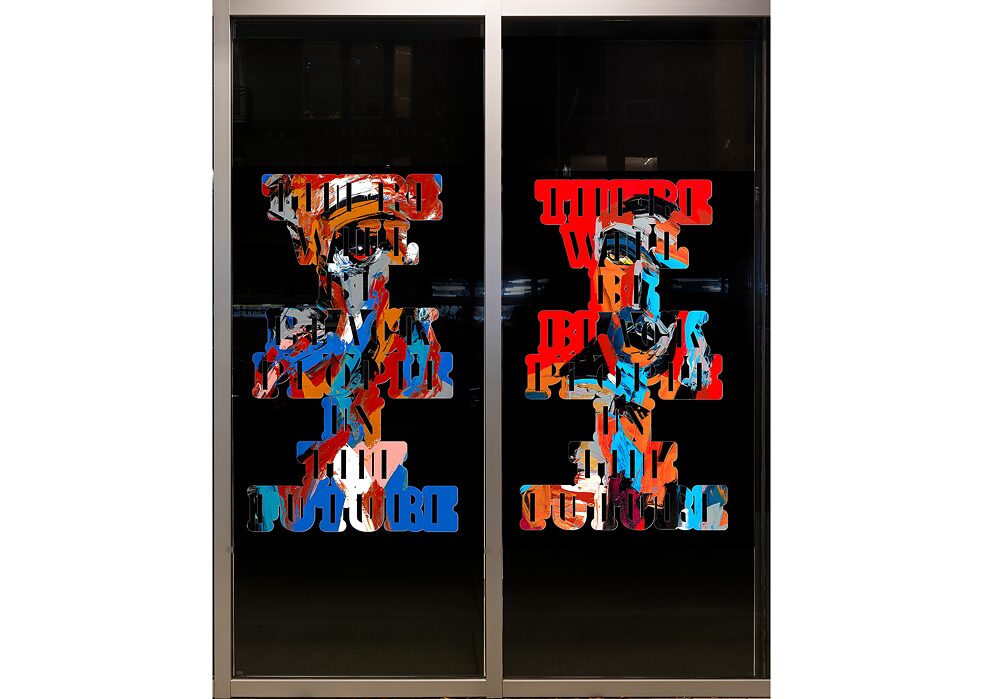How does (non-) remembrance take place in public space? What does a place of (non-) remembrance look like? How can narratives from the past be (re)shaped and transported into the future?
At the Goethe Pop Up Kansas City, together with our local partners, we examined these questions with Shaping the Past fellows Alisha B. Wormsley (There are Black People in the Future) and Patrick Weems (Racial Reconciliation begins by telling the Truth).
Our projects and events centered around the concepts of ‘Racial Healing’ and ‘Reconciliation’ which are used by both Wormsley and Weems to help shape public discourse on memory culture through activism and artistic expression.
After the unveiling of Alisha B. Wormsley There are Black People in the Future billboard in downtown Kansas City, Goethe Pop Up invited nine local BIPOC artists to respond to this statement. Their contributions were presented as an exhibition-on-glass on the Pop Up’s window front.
How can history be shaped through film, and how can film serve as a medium of activism? Following the screening of the documentary The Untold Story of Emmett Louis Till, the Goethe Pop Up Kansas City invited the film’s director, Keith Beauchamp, together with Shaping the Past-Fellow and Executive Director of the Emmett Till Interpretive Center, Patrick Weems, for a discussion about “Memory Culture in Film: Remembering. Emmett Till.“
What can Germans and Americans learn from each other when it comes to facing and (re-)shaping the past? Joining this discussion from both sides of the Atlantic are four highly acclaimed memory workers: Berlin-based American philosopher Susan Neiman, author of Learning from the Germans: Race and the Memory of Evil; artist Glenn North, Co-Liaison of the Community Remembrance Project Missouri in Kansas City; Shaping the Past Fellow Patrick Weems, Executive Director of the Emmett Till Interpretive Center; and Dave Tell, Co-Director of the Institute for Digital Research in the Humanities at the University of Kansas.
Alisha B. Wormsley is an interdisciplinary artist and cultural producer based in Pittsburgh, PA. Her work focuses on collective memory and the synchronicity of time, specifically through the stories of women of color.
More on Alisha B. Wormsley
Patrick Weems is a community builder, social entrepreneur, and philanthropy leader based in Sumner, MS. With more than 10 years of experience in racial justice and restorative justice work, Weems is leading transformational change that will last through the generations.
More on Patrick Weems















